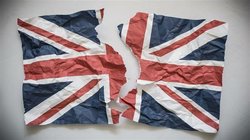 Beijing has once again told the United Kingdom to stay out of China's internal affairs. This time after Britain's foreign secretary, Dominic Raab called for an independent investigation into the recent protests in its former colony, Hong Kong.
Beijing has once again told the United Kingdom to stay out of China's internal affairs. This time after Britain's foreign secretary, Dominic Raab called for an independent investigation into the recent protests in its former colony, Hong Kong. RNA - In China, accusations of interference go hand-in-hand with mentions of British hypocrisy. Under this pretext, we will have a look at the hypocrisy that taints almost every British move in the World.
Hong Kong
August 2019: British Foreign Secretary, Dominic Raab, has called for an independent investigation into the recent protests in its former colony, Hong Kong. China, once again, told the United Kingdom to stay out of China’s internal affairs.
The UK has been accused of 'brazen hypocrisy' after raising concerns about the state of democracy and human rights in Hong Kong. The British haven’t always been so concerned about “protecting democracy” in Hong Kong. Before the city was handed over to China in 1997, Hong Kong was a British colony and administered by an unelected, and always British, governor.
Assange & Pinochet
June 2019: the UK signed WikiLeaks publisher Julian Assange’s extradition papers to the US for publishing classified information.
Nineteen years ago, in 2000, in a similar case, the UK citing the aging Chilean dictator Augusto Pinochet’s inability to stand trial, prevented him from being extradited to Spain where he would have faced prosecution for human rights abuses.
Golan Heights
March 2019: Donald Trump declared his recognition of Israeli sovereignty over the Golan Heights, the territory seized from Syria in a 1967 war. The UK predictably hurried to join Belgium, France, Germany and Poland to rebuke and distance themselves from the decision.
This declaration goes counter to official UK policy, which has helped to prolong and radicalise Syria’s devastating war. Britain has engaged in a covert operation with allies to overthrow President Bashar al-Assad for more than six years.
Britain and France are the only other US partners that still have ground forces in Syria.
The UK has supported the Syrian opposition, since the early days of the civil war in 2012 to 2013, with the intention of debilitating Assad’s power, which will result in the weakening of Syria's capability to reverse the occupation of the Golan Heights.
Lebanon
February 2019: Sajid Javid, the then British Home Secretary, said that Britain would add Hezbollah, the Lebanese political party, in its entirety, to its list of banned terrorist organisations.
Hezbollah's armed wing was already banned in 2008 but its political wing was not. Hezbollah, and its allies, gained around 60 percent of the popular vote in last year’s parliamentary elections. They have acted as one of the most effective fighting forces against Daesh.
Citing Hezbollah as a security threat, when the UK was struggling with the blow-back from its own Daesh recruits, demonstrates how separated the UK is from reality.
Venezuela
January 2019: the UK piled pressure on Venezuelan President, Nicolas Maduro, to allow elections. The UK followed the US and other countries in recognizing Juan Guaido, the National Assembly leader, as the legitimate president of Venezuela.
This is while, on 11th September 1973, the UK helped the Chilean military to violently remove the elected government of Salvador Allende and install a dictatorship under Pinochet, whose regime became a byword for political killings and “disappearances” and torture.
Margaret Thatcher, the then Prime Minister of Britain, called Pinochet a “true friend”.
The UK also, repeatedly, tries to point out the opposition Labour party leader Jeremy Corbyn’s associations with the governments of Maduro, and of his predecessor, Hugo Chávez.
847/940